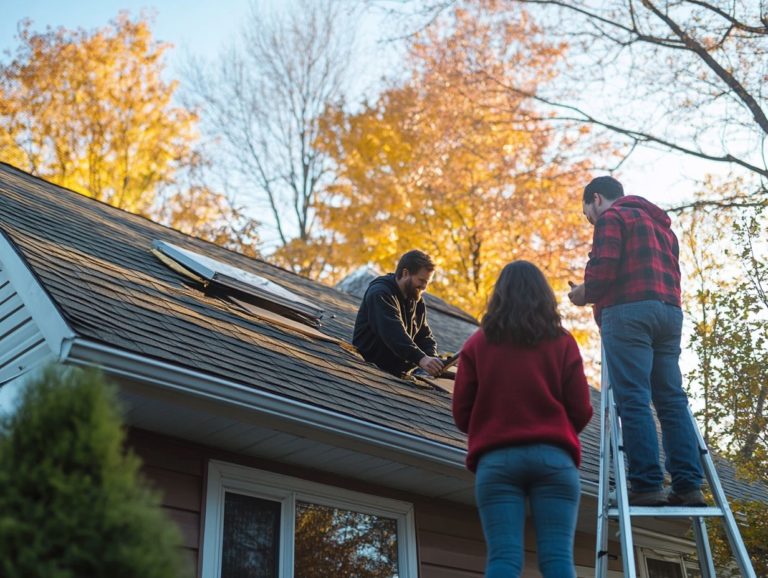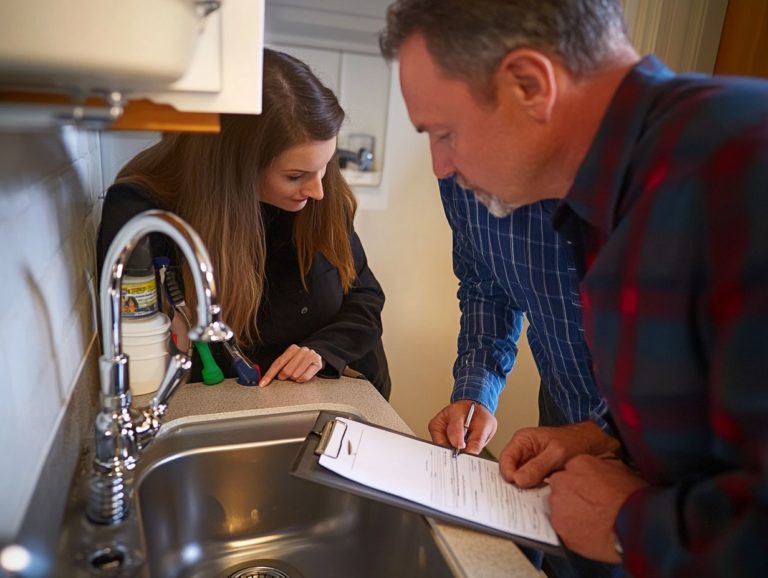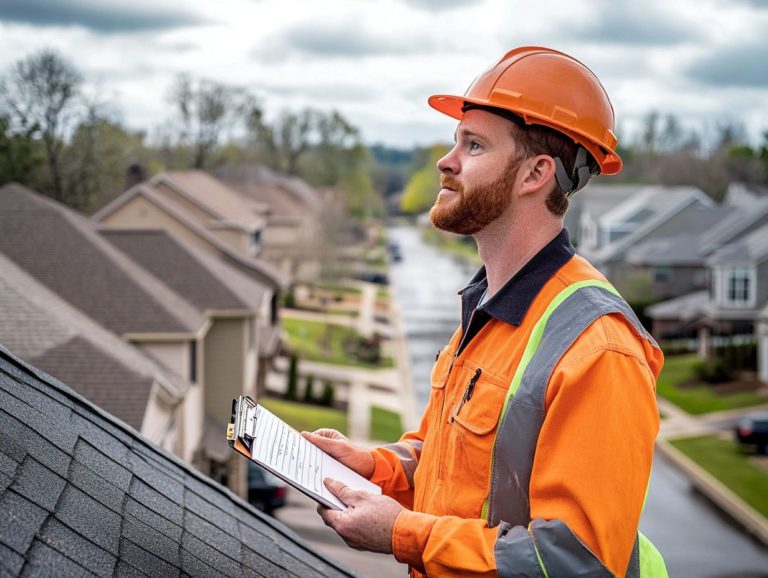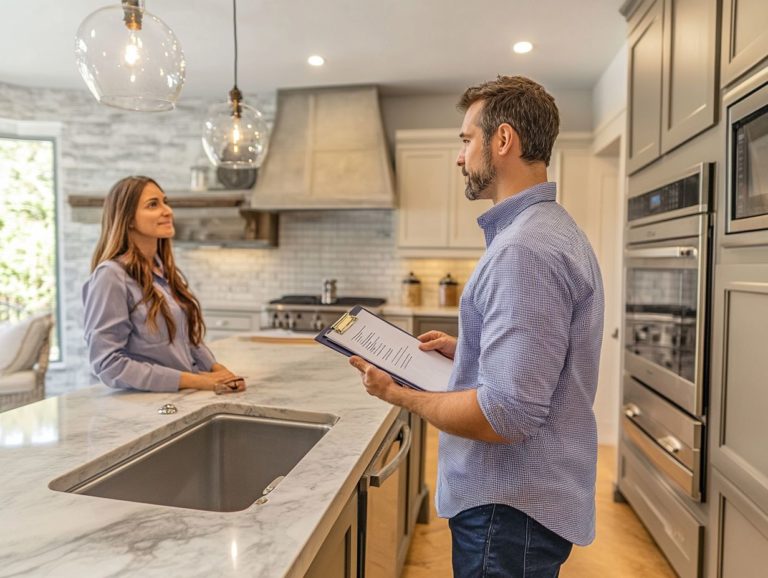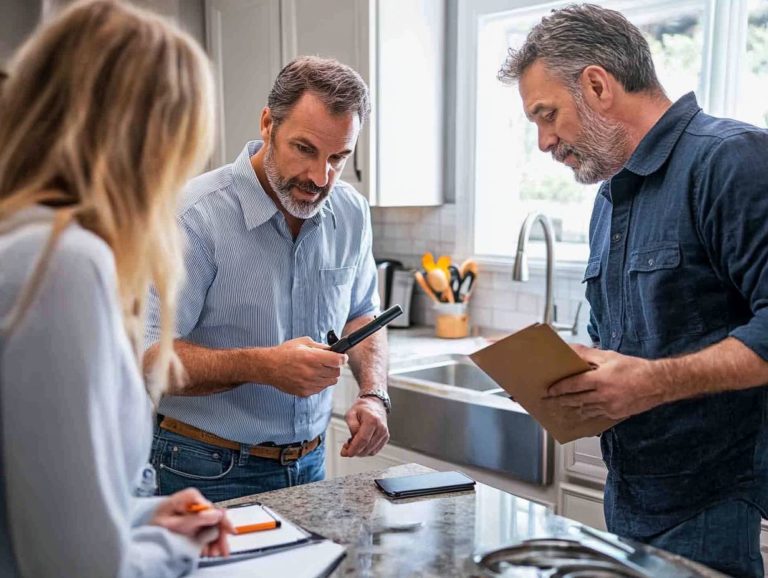How to Prepare for a Home Inspection
When you re stepping into the realm of buying or selling a home, a thorough home inspection can truly set the stage for success. Grasping the purpose and importance of this process is essential for everyone involved.
This guide delves into the reasons why home inspections are vital, offers tips on how to prepare your home effectively, and highlights common issues that inspectors frequently uncover.
You ll also discover how to select a qualified inspector and what actions to take once you receive the inspection report.
Whether you re a first-time buyer or a seasoned seller, this information will empower you to navigate the inspection process with assurance and clarity.
Contents
- Key Takeaways:
- Understanding the Purpose of a Home Inspection
- Preparing Your Home for Inspection
- Common Issues Found During Home Inspections
- Working with a Professional Home Inspector
- Follow-up Actions After a Home Inspection
- Frequently Asked Questions
- What is a home inspection?
- Why is it important to prepare for a home inspection?
- How far in advance should I start preparing for a home inspection?
- What are some common areas that are inspected during a home inspection?
- What can I do to prepare the interior of my home for an inspection?
- How can I prepare the exterior of my home for an inspection?
Key Takeaways:
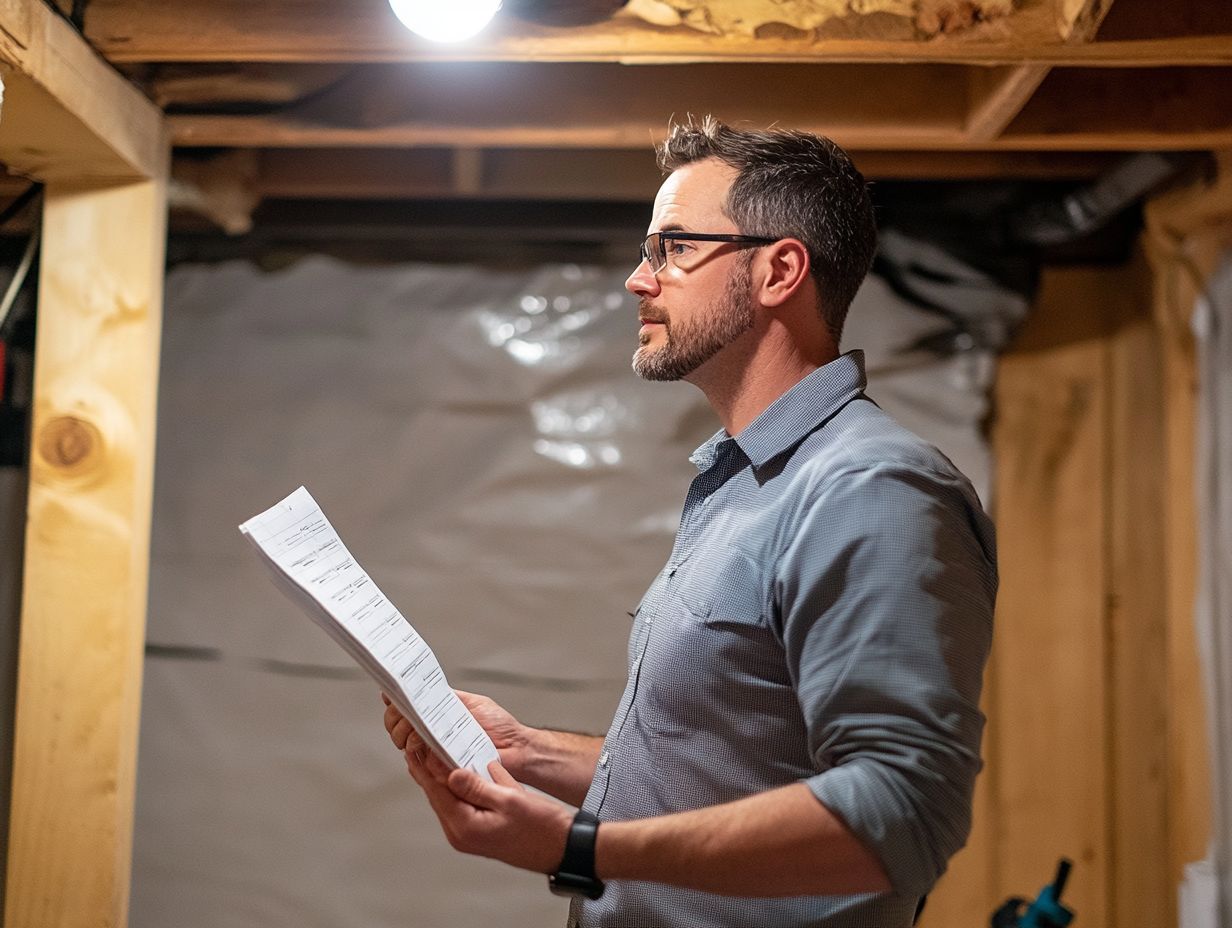
- Understand the importance of home inspections in the buying/selling process.
- Prepare your home for inspection by completing thorough checks of both the exterior and interior.
- Be aware of common issues found during inspections and address potential problems before the inspection.
Understanding the Purpose of a Home Inspection
Understanding the significance of a home inspection is crucial for buyers and sellers. It provides a detailed assessment of the property’s condition before any transactions occur.
A meticulously conducted home inspection can unveil both major and minor repairs. This includes everything from foundation concerns to pest control issues, guiding the negotiation process.
This proactive strategy not only grants peace of mind to home buyers but also equips sellers with valuable insights to boost their property s appeal. This ultimately facilitates a smoother home selling experience.
Why Home Inspections are Important
Home inspections are vital as they offer a comprehensive view of a property’s condition, enabling you whether you re buying or selling to make well-informed decisions during the transaction.
As the inspection unfolds, professionals meticulously assess various elements of the home, including plumbing, electrical systems, and the structure’s strength. This thorough examination often uncovers hidden issues, such as water damage or significant repairs, that might escape even the most trained eye.
For buyers, grasping these potential liabilities can transform the negotiation landscape. It enables you to request necessary repairs or price adjustments before sealing the deal. Sellers can take advantage of a detailed report to proactively address concerns, streamlining the selling process and enhancing marketability.
Preparing Your Home for Inspection
Preparing your home for inspection is a crucial step in creating a favorable experience for both you, the home buyer, and the professional home inspector. For detailed guidance, check out how to prepare for a home inspection.
Get ready for a smooth inspection process by ensuring your home shines! This preparation facilitates complete access to the property’s essential areas and systems. For more detailed advice, check out how to prepare for a home inspection, ensuring that nothing is overlooked and that the process runs smoothly.
Exterior Checklist
An exterior checklist is crucial for your home inspections, concentrating on key areas like roof condition, foundation integrity, and potential pest control issues.
- This comprehensive evaluation highlights visible signs of wear.
- It also uncovers hidden problems that could lead to expensive repairs down the line.
For example, a careful examination of the roof for missing shingles or damage can save you from future leaks and water damage. Inspecting the foundation for cracks could unveil serious structural weaknesses that must be addressed immediately!
Look for signs of pest infestations, such as droppings or damaged wood. This ensures any unwelcome guests are dealt with before they harm your home.
Each item on this checklist is vital for protecting your property and extending its lifespan.
Interior Checklist

The interior checklist serves as a cornerstone of your home inspection process, carefully checking key parts such as the heating and cooling system, plumbing and sewage, electrical work, and major appliances.
This assessment keeps you updated on your property s condition. It also reveals potential issues that could affect your comfort and safety.
For example, a malfunctioning heating and cooling system might subject you to uncomfortable temperatures and soaring energy bills. Plumbing problems could lead to leaks, mold growth, and expensive repairs.
Inspecting the electrical work is vital to avert hazards like electric shocks or fires from faulty wiring. Reviewing major appliances helps you find inefficiencies that could snowball into larger problems, ultimately protecting your investment and ensuring the well-being of everyone in the home.
Common Issues Found During Home Inspections
During a home inspection, you may encounter a spectrum of common issues, from minor repairs that are easily addressed to more serious concerns such as foundation problems and water damage.
These findings significantly influence both the safety and overall value of the property, making it crucial for you to be aware of their implications.
Identifying and Addressing Potential Problems
Identifying and addressing potential issues during a home inspection is essential for ensuring the property’s integrity and safety for future occupants. Understanding what to expect with a home inspection enables you to uncover common problems like foundation issues or signs of water damage, both of which can seriously compromise the building’s structure.
Timely repairs are imperative. Waiting too long can lead to even more severe consequences and escalating costs down the line. By taking preventive measures, you can effectively shield against these issues, fostering a more secure living environment.
Recognizing potential hazards not only protects your financial investment but also enhances the overall comfort and safety for everyone who calls the property home.
Working with a Professional Home Inspector
Collaborating with a professional home inspector truly elevates the quality of a home inspection, offering invaluable insights that serve to benefit both buyers and sellers throughout the transaction process.
Choosing a Qualified Inspector
You need a qualified home inspector to ensure a thorough and reliable home inspection, which plays a significant role in your buying or selling journey.
It’s important for you to consider the inspector’s credentials, such as certifications from recognized organizations and a proven track record in the field. An inspector with years of experience and a solid understanding of local building codes can provide insights that others might miss.
If they have a background in construction or engineering, their ability to spot potential issues will be significantly enhanced.
Ultimately, their expertise leads to a more accurate and comprehensive inspection report, ensuring that any hidden problems are addressed before transactions move forward. This diligence protects your investment and grants peace of mind to everyone involved.
What to Expect During the Inspection
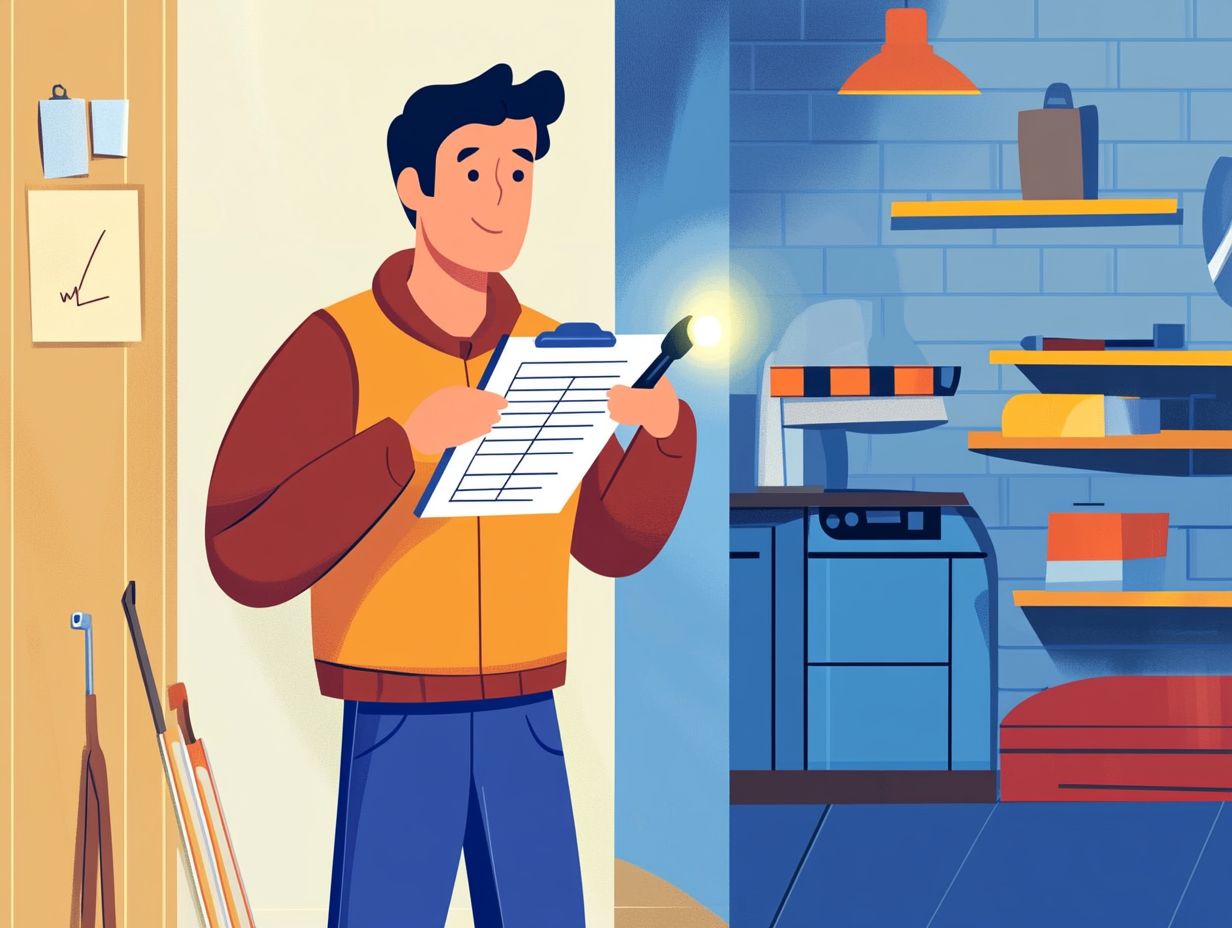
During a home inspection, you can expect a meticulous examination of the property’s condition, conducted by a professional home inspector who will assess various systems and components.
This comprehensive evaluation typically covers the roof, foundation, plumbing, electrical systems, and heating and cooling units, while also checking for any signs of pests or water damage.
Access points like attics, basements, and crawl spaces are scrutinized to ensure nothing critical is overlooked.
The importance of the resulting inspection report cannot be overstated; it serves as an essential tool during negotiations. This document outlines any deficiencies or necessary repairs, enabling you to make informed decisions regarding price adjustments or requests for repairs before sealing the deal, thereby protecting your investment.
Follow-up Actions After a Home Inspection
Follow-up actions after a home inspection are essential for addressing any issues highlighted in the inspection report.
This process ensures that both home buyers and sellers are thoroughly informed about the necessary repairs, allowing for a smoother transaction and greater peace of mind.
Start your home inspection today to secure your investment!
Understanding the Inspection Report
Understanding the inspection report is vital for buyers as it highlights critical findings and necessary repairs or maintenance.
By carefully reviewing this document, buyers can assess the overall condition of the property, enabling informed decisions about future investments. The report usually distinguishes between major and minor repairs. Major issues could signal serious structural concerns or safety hazards, while minor repairs typically involve straightforward fixes, such as cosmetic updates.
Understanding these differences is important, as they can significantly impact negotiations and expectations. You might think twice about your offer if major repairs are required. Meanwhile, a seller may prioritize addressing these issues to boost its appeal and value in a competitive market.
Addressing Any Necessary Repairs
Addressing any necessary repairs identified in the home inspection is essential for ensuring a seamless transaction and a safe living environment for future occupants.
By prioritizing these repairs, you can significantly enhance the overall value of your property, making it more appealing to potential buyers. For instance, tackling key issues such as structural problems or plumbing leaks first can greatly influence negotiation discussions.
When major repairs are handled, buyers will approach you with greater confidence. You can leverage these completed improvements to justify a higher asking price.
Think about negotiating repair credits or offering warranties! These strategies can create a win-win situation that benefits everyone involved in the transaction.
Frequently Asked Questions
What is a home inspection?
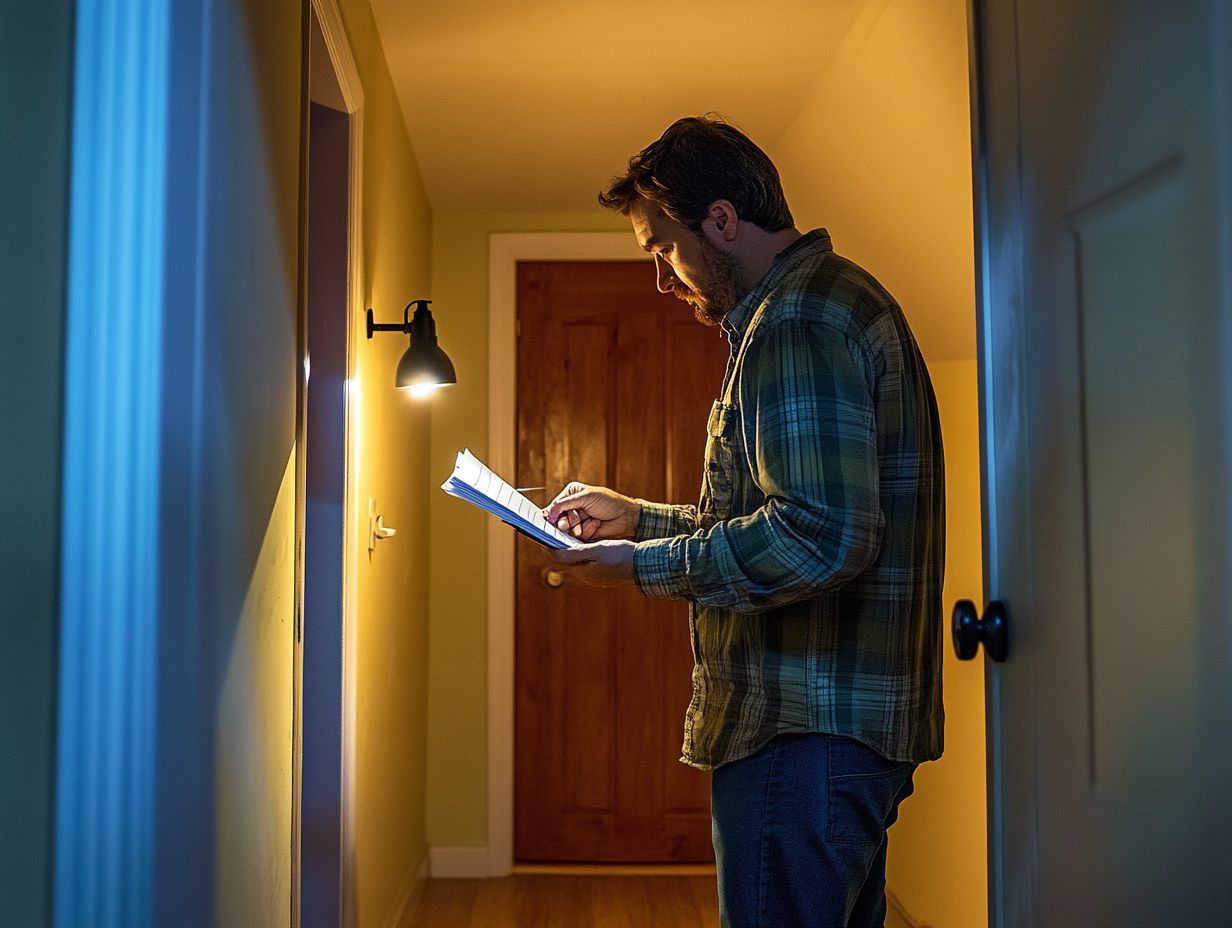
A home inspection is a thorough examination of a property’s condition, typically conducted by a professional inspector, to identify any potential issues or concerns.
Why is it important to prepare for a home inspection?
Preparing for a home inspection can help save time and potentially avoid any major issues that may arise during the inspection. Knowing how to prepare for a successful home inspection also shows that you are a responsible and proactive homeowner.
How far in advance should I start preparing for a home inspection?
It is recommended to start preparing for a home inspection at least 1-2 weeks before the scheduled date. This will give you enough time to address any necessary repairs or improvements, as outlined in the guide on how to prepare for a home inspection as a seller.
What are some common areas that are inspected during a home inspection?
A home inspection typically includes the foundation, roof, plumbing, electrical, HVAC systems, and other structural components of the property. Inspectors may also check for issues with the windows, doors, and appliances.
What can I do to prepare the interior of my home for an inspection?
Some steps you can take to prepare the interior of your home for an inspection include decluttering and organizing, checking for any leaks or water damage, testing all smoke alarms and carbon monoxide detectors, and making sure all lights and outlets are functional. For a comprehensive approach, refer to this guide on how to prepare for a home inspection.
How can I prepare the exterior of my home for an inspection?
To prepare the exterior of your home, trim any overgrown vegetation, clean gutters and downspouts, repair any cracks or damage to the siding or foundation, and remove any debris from the yard. Additionally, you should follow essential steps for a home inspection to ensure all outdoor lights and outlets are working properly.

